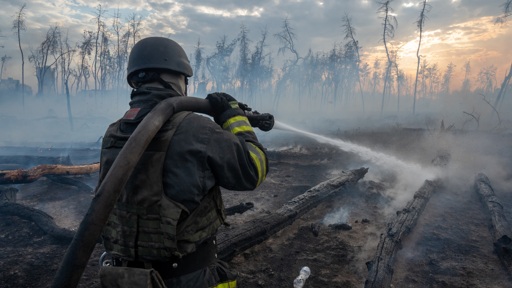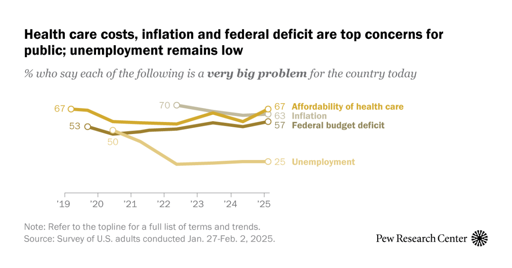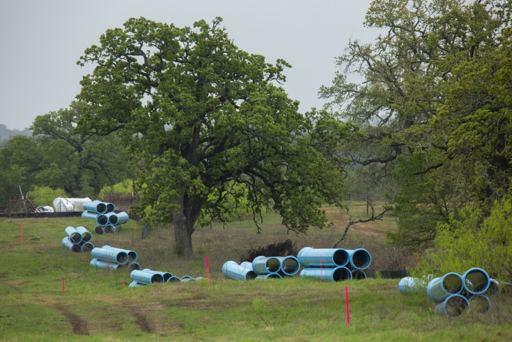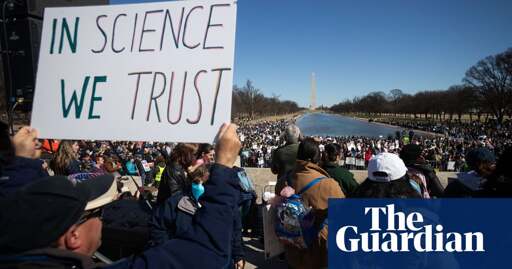- 21 Posts
- 11 Comments

 1·3 months ago
1·3 months agoAgreed. I shared this not to promote Blair’s viewpoint, of course, but to demonstrate how climate denial talking points are shifting away from “it’s not happening” to “it’s happening, but we can’t stop it.”
To be fair, it’s going to be incredibly difficult to wean ourselves off of fossil fuels, especially when we look at it from a game-theoretic perspective. But the alternative isn’t implementing techno-fixes like carbon capture, it’s the collapse of the biosphere (and the resulting decline and collapse of industrial civilization). Elites like Blair continually stop one step short of acknowledging this (likely because they figure their wealth will insulate them, and/or they’ll be dead before it gets that bad).

 1·3 months ago
1·3 months agoI got banned from r/Sustainability for saying I was in favor of lowering birthrates. (Cue the accusations of eco-fascism and eugenics, rather than any meaningful discussion.)
For what it’s worth, I don’t believe governments should have the power to dictate our ability to give birth, that’s immediately dystopian. But we need to acknowledge that overshoot is a function of population x per-capita consumption, and we can’t just look at one side of that equation.

 1·3 months ago
1·3 months agoChoose your adventure! A: Poison the rain, soil, and groundwater with endocrine-disrupting/fertility-lowering/cancer-causing toxins for generations to come. BUT! You don’t have to preheat your pan. Worth it?

 2·3 months ago
2·3 months agoEh, corporations are people at the top, people in the middle, and people on the bottom. Someone had the idea, someone OK’d it, and someone carried it out. Incorporating just frees up a little responsibility/liability.

 4·4 months ago
4·4 months agoYeah, Kim Stanley Robinson likely did his homework on which parts of the world were most likely to experience the first heat wave with mass casualties.

 1·4 months ago
1·4 months agoI see this less as a reference to value, and more as a reference to scarcity. The two are linked, of course, but for most of recent history we’ve been thinking of water as a free/abundant public resource that (literally) falls out of the sky. Now that water rights, water futures, and pipelines are in the picture, we’re starting to treat water more as a private commodity. And yes, the implications of that are very scary.

 4·4 months ago
4·4 months agoCarbon Brief published a great article on this subject: Q&A: What does deep-sea mining mean for climate change and biodiversity loss? Some takeaways on its impacts:
- A 2020 study stated that “scientific misconceptions are likely leading to miscalculations of the environmental impacts of deep-seabed mining”. It added that the disturbance from a single mining operation “could easily be” up to four times larger than its direct mining footprint, affecting up to 32,000 square kilometres over 20 years.
- The potential cost of restoring damage to deep-sea ecosystems could be “astronomical”, according to a report by Planet Tracker, a not-for-profit thinktank.
- A 2022 UN Environment Programme Finance Initiative (UNEPFI) briefing paper saw “no foreseeable way” in which the financing of deep-sea mining could be consistent with a sustainable blue economy. It called on investors to instead “focus efforts” on reducing “the environmental footprint of terrestrial mining” and “support the transition toward a circular economy” to make current mineral demand “obsolete”.
- A 2023 study found that deep-sea mining “is unlikely to resolve the sustainability challenges in the conventional mining sector” and any environmental impacts avoided on land “would be at the expense of economic benefits in mining-reliant” developing countries.
Deep-sea mining can also harm marine organisms that are crucial for climate regulation – those that store carbon in the seabed or produce oxygen in the deep ocean.
- A 2024 study found that polymetallic nodules may be responsible for producing oxygen at the seafloor in the CCZ. The authors said that this oxygen production could be critical for sustaining life at the seafloor.
- A 2025 Nature study provided a rare insight into some of the lasting impacts that mining can cause. It focused on a 1979 mining experiment in the Clarion-Clipperton Zone. During the 1979 test, a mining machine drove grooves into the seafloor. These furrows, which were almost one metre deep and up to three metres wide, looked much the same after 44 years. These impacts are consistent with findings in other surveys of mined test sites.
Seafloor mining vehicles emit toxic plumes of sediments that can impact marine life in the midwaters, from reducing their ability to communicate and causing physiological stress, to forcing species to migrate. Species that could be impacted include sharks, dolphins, whales, squid, fish, shrimp, copepods and jellyfish.

 3·4 months ago
3·4 months agoWe all have different roles to play. I’m here for the fight, but I have a few friends who are fleeing to Europe right now. I can understand both choices.

 2·4 months ago
2·4 months agoThank you for sharing and summarizing! A few more takeaways relating to climate change:
- Emissions growth (0.8%) is lower than GDP growth (3.2%) for 2025, which could be seen as evidence of decoupling. Growth in electricity demand (4.3%) outpaced GDP.
- Renewables made up nearly 40% of new energy production, but coal, oil and natural gas use has continued to increase to record highs.
- Total & per-capita emissions are decreasing in the US & EU, but increasing in China and India.



















This is an absolute travesty. The NCA5 was some of the most comprehensive data on climate change in the US, and included sets of projections for multiple degrees of warming. This erasure (and the termination of scientists working on the NCA6) is a huge blow to anyone looking to build resilience in this country.
I had a feeling this was coming, so I pre-emptively archived both the data sets and the reports. You can access them with the links below:
You can access a snapshot of the page here; I’ve also posted analyses of this data (along with interactive maps) here, here, and here.